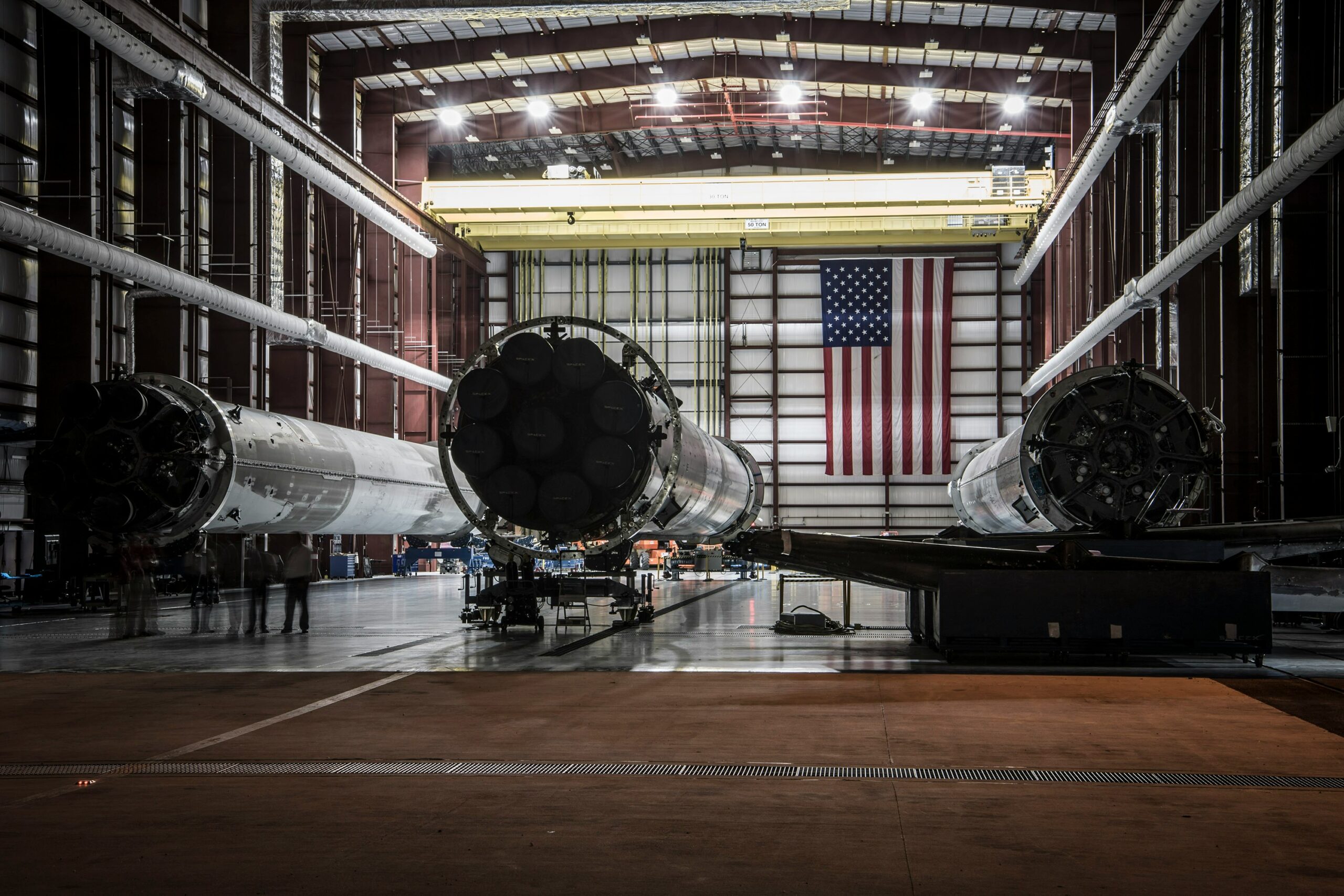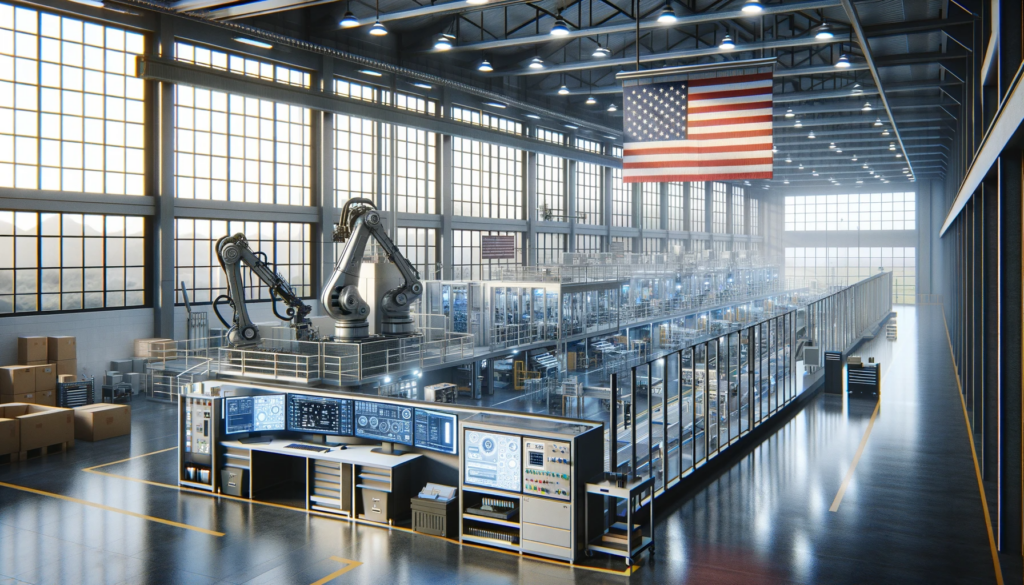Venture capital has played a critical role in American innovation since the end of World War II. Its ability to catalyze new technologies has proved vital to national security and American economic dominance. From a few small farms to a multi-trillion-dollar industry, venture capital (VC) has changed the way we start, build, and scale companies. [1]
Aerospace and defense technology comprised much of the early activity in venture capital. But at the end of the Cold War, these kinds of venture investments waned. At the same time that many firms hesitated to invest in aerospace and defense, internet and software companies boomed; they quickly became the primary generator of wealth in the venture industry.
This lack of VC investment in aerospace and defense contributed to the consolidation of the American defense industry into five primary firms, which now procure the vast majority of federal contracts [2.]
Today, ongoing international conflict and the emergence of great powers have fueled a renaissance of private investment in America’s national security sector. This resurgence of funding into aerospace in particular can be attributed to the commercial success of companies like SpaceX and other space exploration companies. These firms have provided a successful model for aerospace companies, and have helped make the sector attractive to outside investment once again.
This article will give a brief overview of the history of VC in the development of national security technology, and a primer on how Utah-based aerospace, defense, and cyber companies can access venture capital.
Early venture capital
The modern roots of venture capital go back to the creation of the American Research and Development Corporation (ARDC) in 1946. This firm revolutionized how small investment firms could fund the creation of critical technologies. Private equity could now support everything from nuclear accelerators to water filters to military hardware, spurring innovation and growth in America’s frontier technologies.
This firm inspired the creation of other VC firms including Davis & Rock, the firm that went on to fund Fairchild Semiconductor—the creator of some of the first dual-use computers in the United States. Fairchild is the grandfather of multiple VC firms including Sequoia, founded 1972 [3.] This firm, and many like it, created an economic system that fueled rapid innovation and the development of emerging technologies. Many of these products were also funded by the Department of Defense, which allocated over $750 million in emergency defense research and development from 1951-1957. These compounding funding mechanisms ultimately led to the emergence of the United States as the world’s dominant economic and technological power.
Silicon Valley’s rise
A primer on venture capital would be incomplete without mentioning one of its greatest successes—the development of Silicon Valley. Venture funds such as Sequoia supported the founding and growth of the biggest technology companies in the world, including Apple, Cisco, and Google. Other fabled venture funds include Draper Fisher Jurvetson (DFJ), Bessemer Venture Partners, and Kleiner Perkins.
While Silicon Valley’s biggest funds churned out titan internet and social media companies, other firms emerged, such as Lux Capital, which took an approach more in line with Silicon Valley’s early years. With the help of former CIA Director James Woosley, Lux played a critical role in diversifying the region’s portfolio into companies focused on aerospace, robotics, and other frontier technologies.
New firms specializing in aerospace and defense
Aerospace and defense were at the forefront of early VC investment but slowly declined after the end of the Cold War. Recent geopolitical trends, validated by the success of venture-backed startups like SpaceX and Palantir, highlight the need and opportunity to invest in aerospace, defense, and what now some call “deep tech.” Andreessen Horowitz has helped lead this new wave of venture capitalists for the national interest, dubbing the movement “American Dynamism.” Many firms operate in this same space:
- Founders Fund: This firm has prioritized investing in revolutionary technologies, including various forms of autonomous vehicles. Both of these firms are relatively new to the defense space but are singlehandedly changing how traditional investors view the aerospace, deep tech, and defense ecosystem.
- Scout Ventures is a NYC-based firm specializing in investing in aerospace and defense startups in the seed stage of development. Their staff has extensive experience working in multiple subsets of aerospace and defense, representing the intelligence community, active military service, and national labs. This has led them to develop over 1,200 different contacts in various branches of the government, making it an invaluable advocate at the federal level.
- Silent Ventures is based out of Dallas and specializes in pre-seed, seed, and series A aerospace, defense, and national security companies. Founded by Jackson Moses, the firm boasts an impressive portfolio of companies including Anduril, Swarmrobotics.ai, and many more.
- Shield Capital is one of the largest aerospace, defense, and cyber VCs in the US. They focus on developing technologies that contribute to US National security including AI, Autonomous technology, and spaceflight.
- Lux Capital is dedicated to investing in emerging technologies that seek to revolutionize current markets. It also places a strong emphasis on companies that are creating a better world–both domestically and internationally via their “Securities” program.
- DCVC prioritizes companies that solve real-world problems through computational methods. They believe that VC should be funding organizations that help make the world a better place and solve multigenerational problems.
- Prime Movers Lab Is a VC specifically focusing on developing revolutionary technologies in infrastructure, manufacturing, transportation, human augmentation, and more. They want to invest in firms dedicated to technology that is going to improve the lives of billions.
- Khosla Ventures Is an early-stage investment firm created by VC tycoon Vinod Khosla. It focuses on developing technologies that interrupt current market trends. It specifically focuses on companies that focus on internet technologies, biotechnology, AI, digital health, and sustainability. It’s emphasis on seed-funding makes it a great fit for new firms looking for investment opportunities.
- IQT Is a firm dedicated to expanding technologies that will assist the US and its allies in achieving its strategic objectives. It’s charted by the CIA directly and closely collaborates with them on their projects. It has experience in AI, Cybersecurity, and data analytics. Its commitment to national security technologies makes it a perfect fit for small to medium-sized aerospace and defense firms.
Corporate venture arms
Established companies often play a role in investing in supporting aerospace and defense startups. Due to the high bar of entry into these industries, large corporations can be useful allies, providing critical industry expertise, marketing assistance, and support in obtaining different forms of federal and local funding. Existing aerospace and defense corporate venture arms include the following:
- Airbus Ventures utilizes expansive industry expertise in aerospace to help small aerospace companies grow their technology. They specialize in satellite development, space exploration, and low-carbon aerospace development.
- AE Industrial Partners focuses on developing companies from a wide array of different industries including aerospace, defense contracting, power generation, space technologies, and industrial development. Their connections and experience in each of these industries make them a valuable asset and a major player in the VC space.
- JetBlue Technology Ventures invests in technologies that revolutionize the transportation and hospitality industry. They believe that this industry requires a convergence of different technologies to be effective, and are willing to invest in technologies that help streamline their operations.
- Lockheed Martin Ventures prioritizes investments in cybersecurity, aerospace, and other emerging technologies. Their vast experience in aerospace and defense technology makes it an excellent choice for smaller firms looking for additional resources.
Conclusion
For decades, venture capital has played a critical role in American innovation. It has fueled the development of frontier hardware and software companies, helping the United States become a global leader in advanced technologies. Recent geopolitical trends have pushed some venture firms to refocus on their original thesis: funding aerospace, defense, and deep tech startups.
For aerospace, defense, and cyber startups, raising capital from the right VC can help you leave a lasting legacy on national security.
[1] Baker Library Historical Collections
[2] Cato Institute: The Defense Monopoly
[3] Computer History Museum, Spinoff: Fairchild and the Family Tree of Silicon Valley

